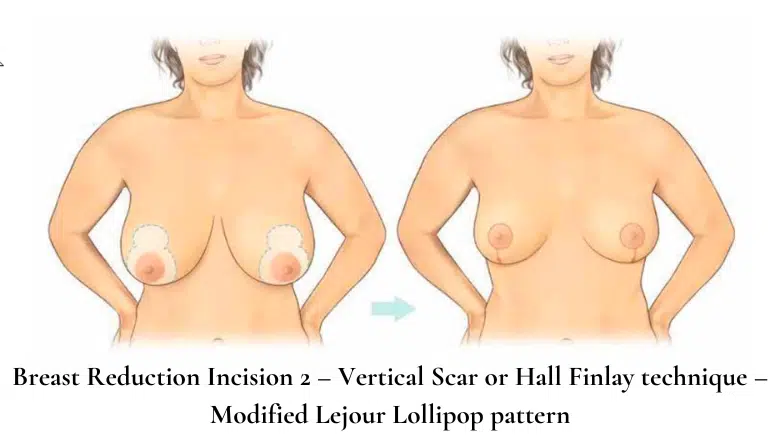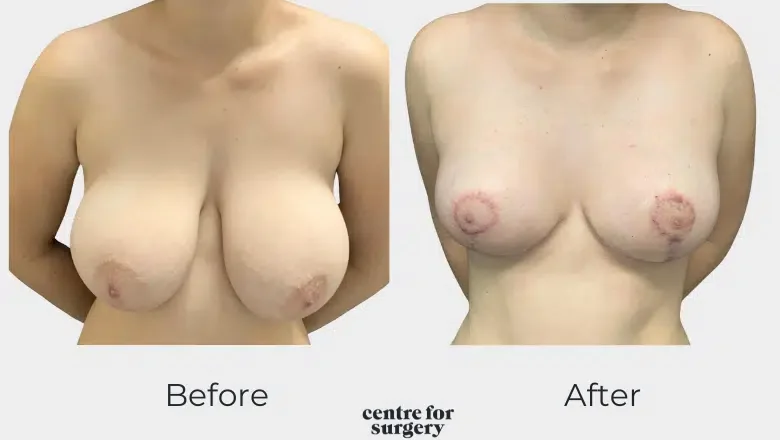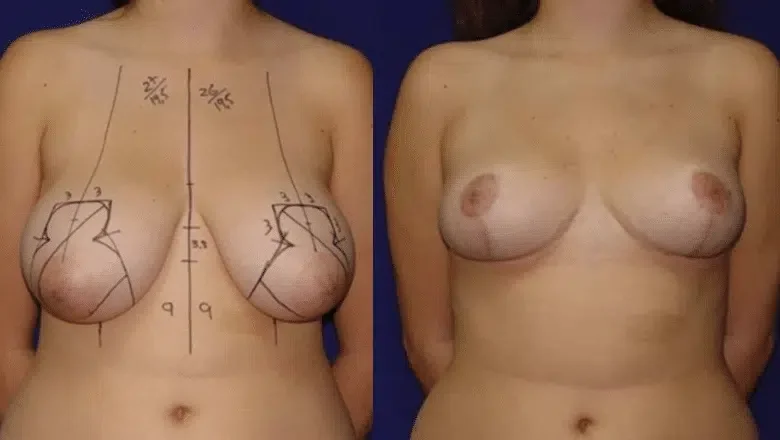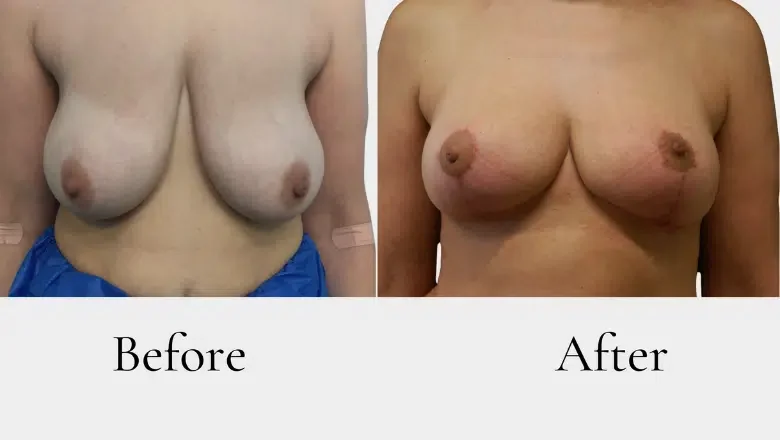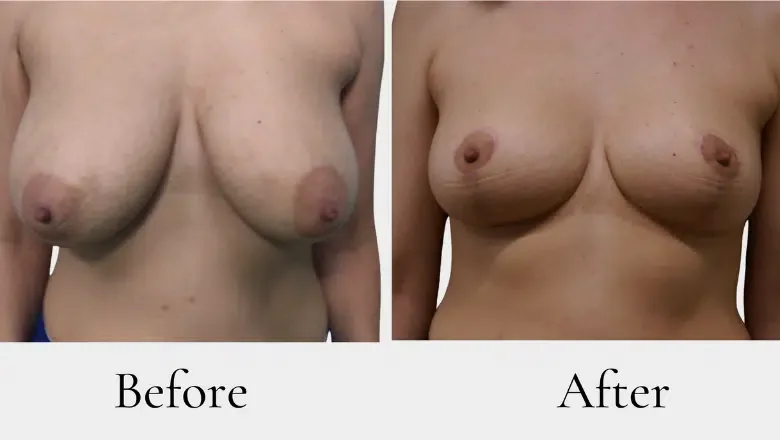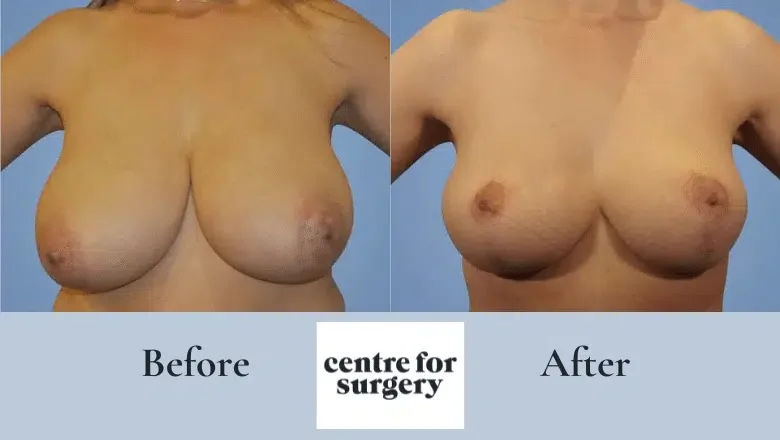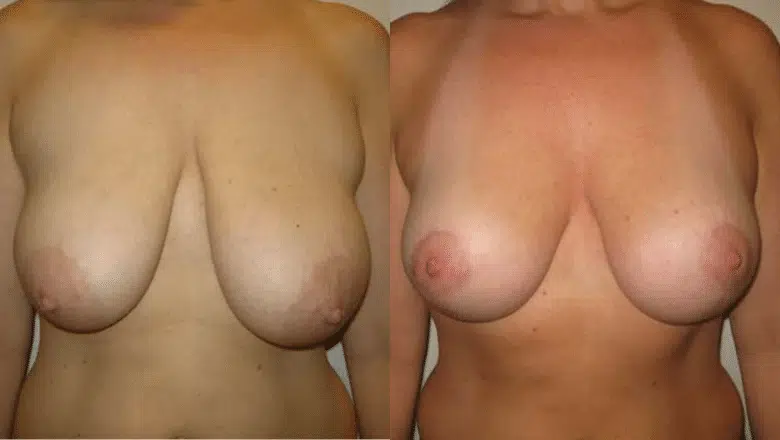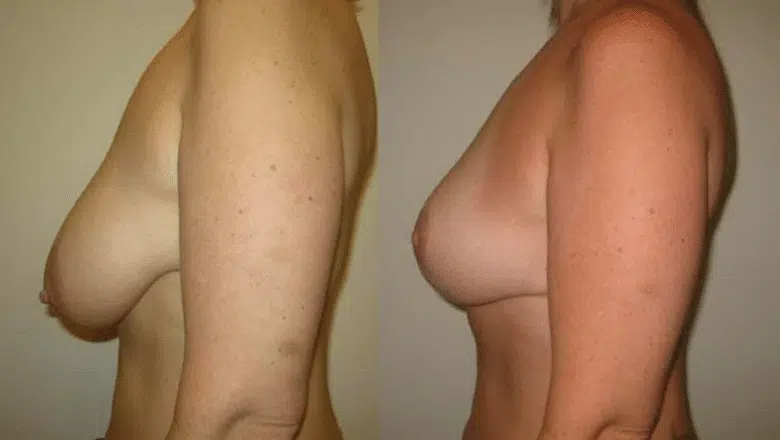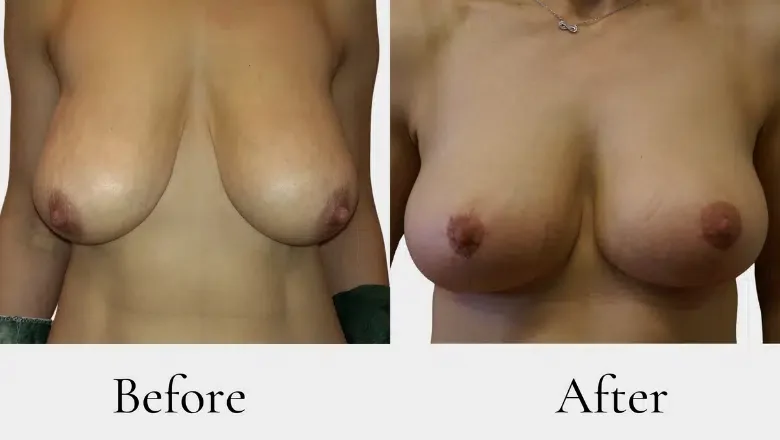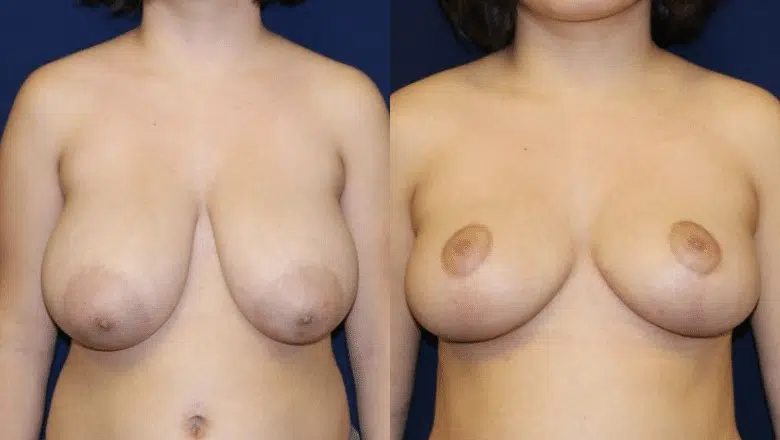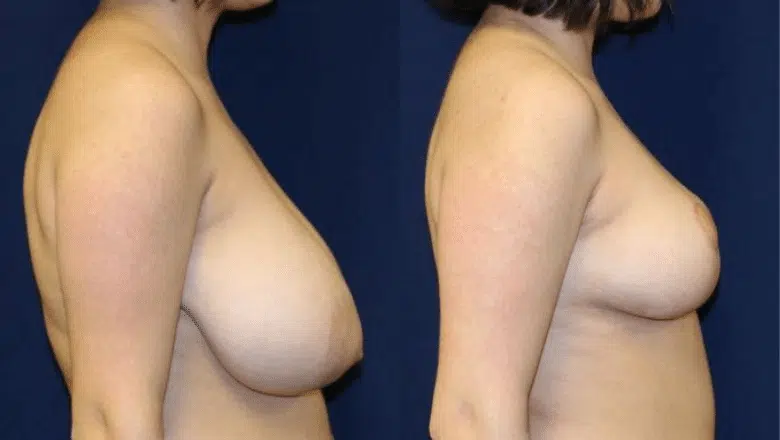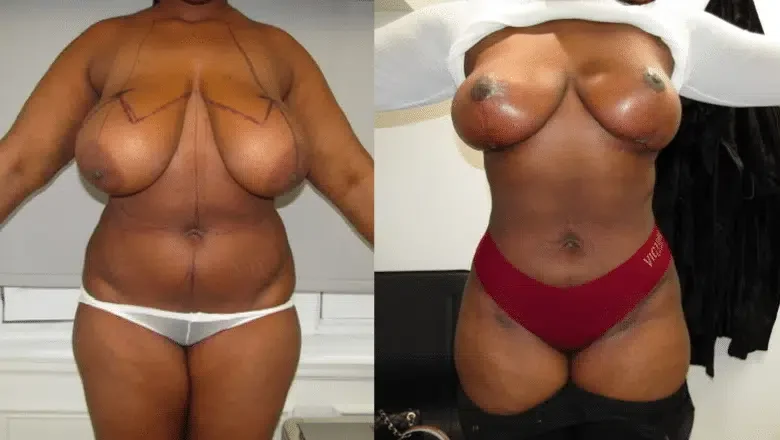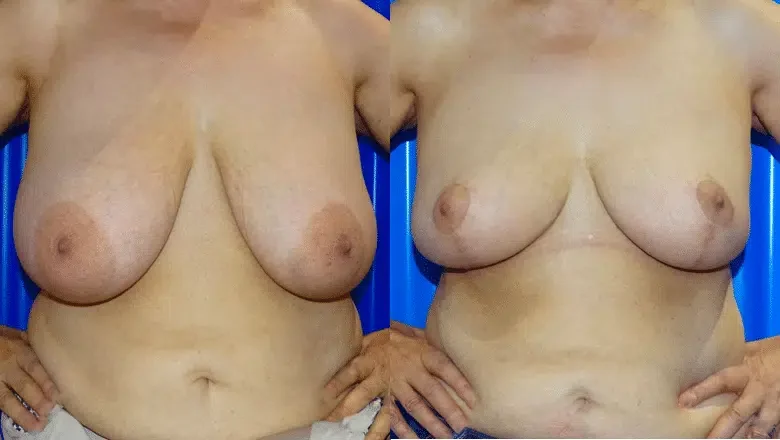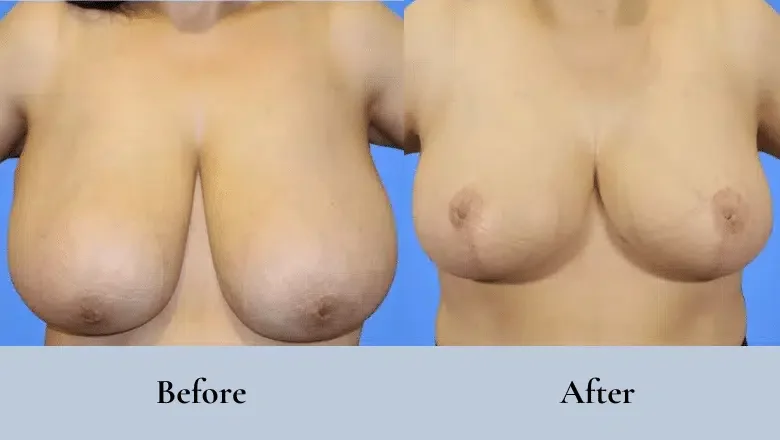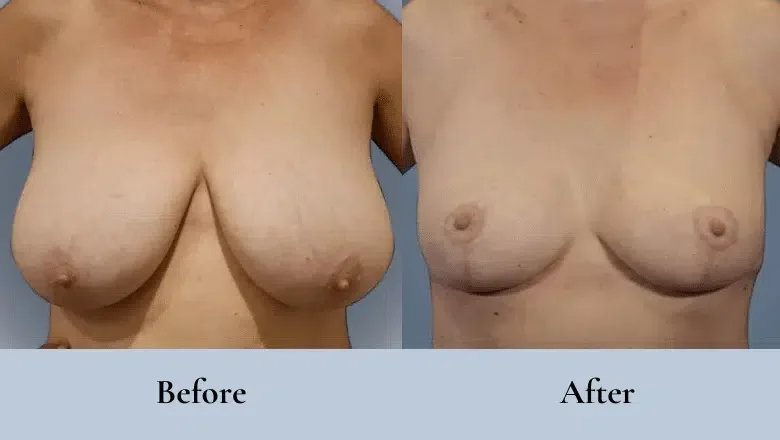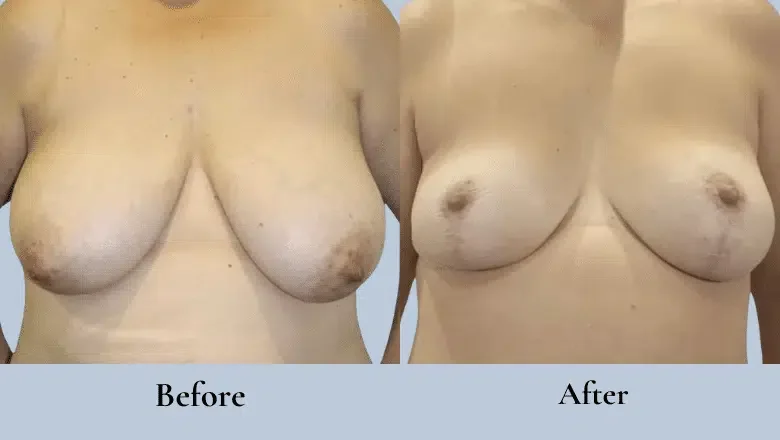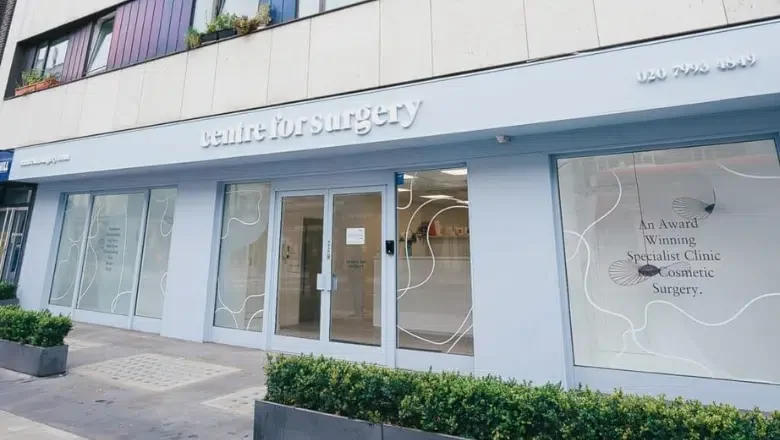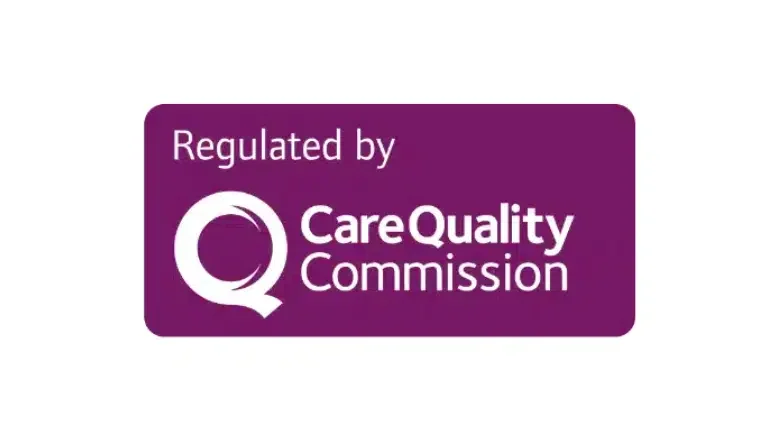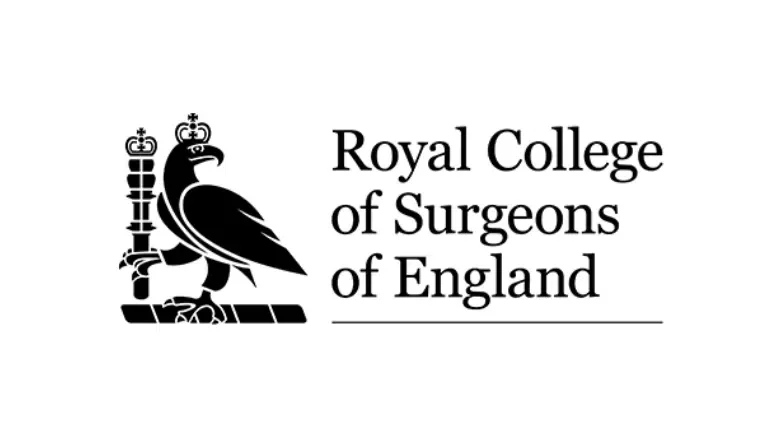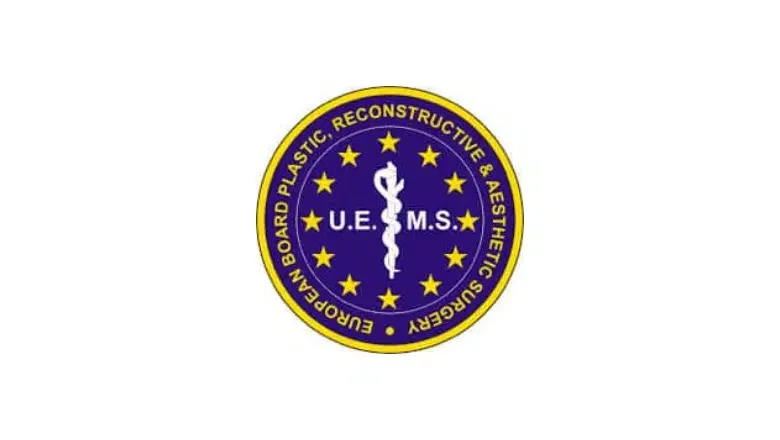Can Breast Reduction Lower Your Risk of Developing Breast Cancer?
Breast reduction surgery, also known as reduction mammoplasty, is often seen as a purely cosmetic procedure. However, many women choose to undergo this operation for medical and functional reasons, including chronic back, shoulder and neck pain, skin irritation, difficulty with exercise, and emotional distress due to the size of their breasts. But beyond these well-known benefits, an important question sometimes arises: can having a breast reduction actually help reduce the risk of breast cancer?
This is a complex and important question that deserves a careful and evidence-based answer. While it might seem intuitive that removing a portion of breast tissue could decrease the chance of developing cancer in that tissue, the science behind this issue requires deeper exploration. In this article from Centre for Surgery, we will unpack the current knowledge surrounding the potential impact of breast reduction on breast cancer risk. We’ll look at what the research says, what it doesn’t say, and how women can make informed decisions about their health and surgery options.
Centre for Surgery is a specialist plastic surgery hospital in London and is considered one of the leading centres in the UK for breast surgery.
RELATED: Is Breast Reduction Surgery Right for Me?
How Does Breast Cancer Develop?
Before diving into the relationship between breast reduction and cancer risk, it’s helpful to understand how breast cancer begins in the first place. Breast cancer occurs when cells in the breast grow in an uncontrolled way. This can happen in different parts of the breast, most commonly in the ducts (tubes that carry milk to the nipple) or the lobules (glands that produce milk). Over time, these abnormal cells can form a lump or tumour, and in some cases, spread to other parts of the body.
There are many risk factors for developing breast cancer. Some of these are things we can’t change, such as age, family history, genetics, and hormones. Others are related to lifestyle, including alcohol use, lack of physical activity, and being overweight after menopause. In some cases, women with a strong family history of breast cancer may be recommended more drastic steps to reduce their risk, such as preventive mastectomy. So where does breast reduction surgery fit into this wider picture?
What Happens During Breast Reduction Surgery?
Breast reduction involves the surgical removal of fat, glandular tissue, and skin from the breasts. The aim is to make the breasts smaller, lighter, and more proportionate to the rest of the body. The procedure also usually involves reshaping the breast and repositioning the nipple to achieve a natural and lifted appearance.
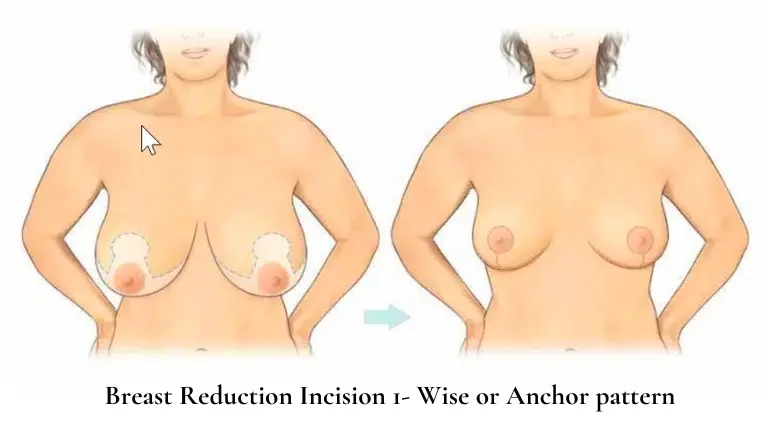
RELATED: Anchor vs Lollipop Breast Reduction
From a medical perspective, the tissue removed during breast reduction is no different from any other breast tissue in the body. And this is where a possible link to cancer prevention becomes interesting. If some of the tissue where cancer might eventually start is taken away, it might follow that the chances of cancer developing in that area would be lower. But is that really what the science shows?
What Does the Research Say?
Several large-scale studies have examined whether breast reduction surgery has any effect on long-term breast cancer risk. Interestingly, many of these studies have found that women who have undergone reduction mammoplasty do indeed appear to have a lower risk of developing breast cancer in the years following surgery.
One notable study from Sweden followed more than 30,000 women who had breast reduction surgery over a period of decades. Researchers found that the women who had the surgery were significantly less likely to develop breast cancer compared to women in the general population. In fact, the reduction in risk was estimated at around 30 to 50 percent. These findings were supported by additional research from Denmark and Canada, showing similar decreases in breast cancer rates after reduction mammoplasty.
But what does this mean in practical terms? The most logical explanation is that by removing breast tissue, the number of cells that could potentially turn cancerous is reduced. It’s a bit like trimming back a tree – if you remove part of the tree, there’s simply less of it left to get diseased. However, it’s important to understand that these studies are observational. They show an association, not a guarantee. We cannot say with certainty that breast reduction prevents breast cancer in a direct, cause-and-effect way.
Important Factors to Keep in Mind
It’s worth noting that breast reduction is not considered a standard method of breast cancer prevention. Unlike risk-reducing mastectomy, which is sometimes recommended for women with BRCA gene mutations or extremely high familial risk, breast reduction is a different procedure with different goals. It removes only part of the breast tissue – not all of it – and it is not designed to eliminate all future risk.
Moreover, breast cancer can still develop in the remaining tissue after a reduction. The risk may be lower, but it is not eliminated. That’s why women who undergo breast reduction must continue to attend regular breast screening (mammograms) based on NHS guidelines or the recommendations of their private care provider.
There is also the question of detection. After breast reduction, scar tissue can sometimes make mammograms slightly more difficult to interpret. Radiologists are trained to recognise post-surgical changes, but women should always inform the imaging team about their surgery history to help ensure the best results.
Are There Specific Groups Who Might Benefit More?
While a general decrease in breast cancer risk may apply to many women who undergo breast reduction, some subgroups may benefit more than others. Women with dense breast tissue – which is associated with a higher risk of cancer and more difficult detection – may potentially see more of a benefit from having part of that tissue removed. However, this is still an area of active research.
Women who have no family history of breast cancer but choose to have a reduction for comfort and quality of life reasons may view the potential lowered cancer risk as an added bonus, rather than a primary motivation for surgery. On the other hand, women with a strong family history or genetic predisposition to breast cancer should speak to their consultant or breast surgeon about whether more comprehensive preventive strategies might be appropriate.
Does the Amount of Tissue Removed Matter?
The amount of tissue removed during the surgery does seem to make a difference in the observed reduction in cancer risk. Studies have shown that larger reductions – in other words, when more breast tissue is removed – tend to be associated with a greater decrease in breast cancer risk. This supports the idea that the reduced risk is due to the reduction in total at-risk tissue.
Still, it’s crucial to remember that even large breast reductions leave a significant amount of breast tissue behind. The remaining tissue can still develop cancer. That’s why breast health remains important after surgery, regardless of the size of the reduction.
Other Health Benefits of Breast Reduction
Even aside from any possible link to cancer risk, breast reduction surgery offers a wide range of health advantages. Many women report dramatic improvements in their ability to move comfortably, sleep better, breathe more easily, and engage in physical activity without pain. It can also alleviate chronic issues such as rashes under the breasts, bra strap grooving in the shoulders, and posture problems.
From a psychological perspective, women often describe a boost in self-esteem, improved body image, and a sense of freedom from the limitations they previously experienced. For many, the decision to have a breast reduction is life-changing, not because it might lower their risk of cancer, but because it significantly improves their everyday quality of life.
Is Breast Reduction Right for You?
If you’re considering breast reduction, your reasons are likely personal and unique to your own body and lifestyle. Whether your motivation is physical discomfort, emotional well-being, or a combination of the two, it’s essential to have a detailed consultation with an experienced surgeon. They can assess your medical history, listen to your concerns, and guide you through your options.
During this process, the topic of cancer risk may come up, especially if you have a strong family history. While breast reduction is not a substitute for other preventive strategies, knowing that it may be linked to a reduced risk of breast cancer can be a reassuring factor in your decision-making process.
It’s also important to approach this surgery with realistic expectations. Breast reduction is a major procedure that requires time for recovery. Like any surgery, it carries risks such as infection, scarring, changes in nipple sensation, and potential issues with breastfeeding in the future. That said, the majority of women who have breast reduction report high levels of satisfaction and long-term improvements in their physical and emotional well-being.
Why Choose Centre for Surgery
Centre for Surgery is committed to delivering the highest standards of surgical excellence, safety, and personalised care. Located in the heart of London on Baker Street, our state-of-the-art surgical facility is purpose-built for plastic and cosmetic procedures, ensuring a seamless experience from consultation to aftercare. We are led by a team of renowned specialist plastic surgeons, each with extensive training and a reputation for outstanding results in breast, body, and facial surgery.
What sets us apart is our patient-first philosophy. You’ll be treated with respect, empathy, and honesty from your first consultation. We understand that choosing to undergo breast reduction or any form of surgery is a deeply personal decision. That’s why we take the time to understand your goals, concerns, and expectations – creating a treatment plan that is uniquely yours.
We are proud to be an independent, doctor-led clinic with no corporate ownership, allowing us to focus solely on quality and care without compromise. All consultations are carried out by your surgeon, not a sales advisor, so you can ask questions, understand your options clearly, and build confidence in your decision.
Our patients consistently praise the experience we provide. Here’s what a few of them have shared:
“I had breast reduction surgery with Centre for Surgery, and I couldn’t be happier. My surgeon was incredibly kind and professional, and the results are better than I ever imagined. I feel like a new person – lighter, more confident, and pain-free!”
— Emily S., London
“From start to finish, the team were amazing. The Baker Street clinic is spotless and so calming. My consultation was thorough, the surgery went smoothly, and the aftercare was second to none. Thank you for changing my life.”
— Jasmine A., Hertfordshire
“After years of discomfort, I finally decided to have my breast reduction done. Centre for Surgery made everything so easy – the surgeon explained everything clearly, and I felt in safe hands throughout. I only wish I’d done it sooner!”
— Natalie B., Surrey
Whether you’re considering breast reduction for physical relief, improved posture, or enhanced confidence, we are here to help you feel empowered, informed, and fully supported every step of the way.
Want to learn more about us?
Explore our full story on our About Us page.
Meet our experienced team of surgeons.
Ready to take the next step?
To book a consultation, call us on 0207 993 4849 or complete our online contact form and a member of our team will be in touch.
Considering your budget?
We offer a range of finance options to help make your procedure more accessible, including interest-free monthly payments for eligible patients.
For further insights into procedures, recovery tips, and expert advice, visit our Plastic Surgery Blog.
Got questions? Find detailed answers in our Clinic FAQs section.
Clinic Address:
Centre for Surgery
95-97 Baker Street
London W1U 6RN
Phone: 0207 993 4849

